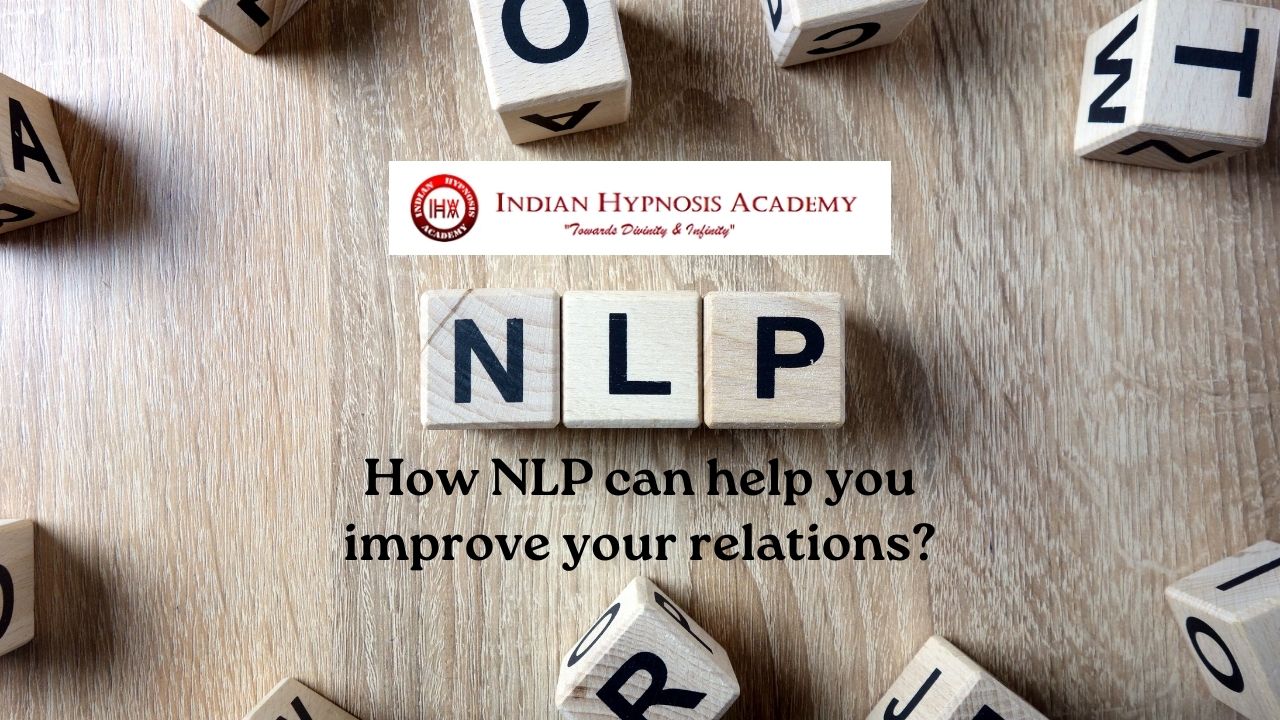Introduction to NLP (Neuro-linguistic Programming)
Welcome to a journey of self-discovery and improved relationships through the fascinating world of Neuro-linguistic Programming (NLP). Have you ever wondered how language shapes our interactions, connections, and ultimately, our relationships? Join us as we explore the transformative power of NLP techniques in enhancing communication, building rapport, and overcoming obstacles in all areas of your life. Let’s dive into the realm of NLP together and unlock the potential for deeper, more meaningful relationships.
Understanding the Power of Language in Relationships
Language plays a pivotal role in shaping our relationships. The words we choose can either build bridges or create barriers between us and those around us. Communication is more than just exchanging words; it’s about understanding the impact of our language on others.
The power of language lies not only in what we say but also how we say it. Tone, body language, and non-verbal cues all play a part in effective communication. Being mindful of these aspects can help foster deeper connections with others.
Words have the ability to inspire, motivate, comfort, or hurt. It’s essential to choose our words carefully to convey our thoughts and feelings accurately without causing misunderstandings or conflicts.
By recognizing the power of language in relationships, we can cultivate stronger bonds based on mutual respect, empathy, and understanding. Let’s strive to communicate with intention and compassion to nurture healthy and fulfilling connections.
Here are some ways language impacts our relationships:
1. It Shapes Our Perception of Others
The words we use to describe someone can have a significant impact on how we perceive them. For example, labeling someone as “lazy” or “selfish” can lead us to overlook their positive qualities and only see them through a negative lens. On the other hand, using words like “hardworking” or “thoughtful” can help us appreciate someone’s positive traits and actions.
2. It Reflects Our Attitude and Beliefs
Our choice of language reflects our beliefs, attitudes, and values. The words we use to communicate with others can reveal a lot about our character and how we view the world. Using positive and respectful language shows that we value and respect others, while negative or aggressive language may indicate underlying anger or frustration.
3. It Can Create Emotional Distance
Sometimes, the way we express ourselves can create emotional distance between us and those around us. For instance, using accusatory language like “you always” or “you never,” can make the other person feel attacked or criticized. This can lead to defensive responses that hinder effective communication and damage relationships.
4. It Can Strengthen or Weaken Relationships
Language has the power to either strengthen or weaken our relationships. Positive and affirming words can build trust, intimacy, and connection with others. In contrast, hurtful or negative language can erode trust and create distance between individuals.
5. It Can Help Resolve Conflicts
Using clear and respectful language is crucial in resolving conflicts effectively. When we communicate calmly and assertively, we are more likely to be heard and understood by the other person. On the other hand, aggressive or blaming language can escalate conflicts and make it difficult to find a resolution.
6. It Can Foster Empathy and Understanding
Language has the power to foster empathy and understanding between individuals. When we listen attentively and choose our words carefully, we can better understand someone else’s perspective and feelings. This creates a sense of mutual understanding and strengthens our relationships.
In conclusion, the power of language in relationships cannot be underestimated. Our words have the potential to bring people together or push them apart. By being mindful of our language, we can cultivate healthy relationships that are built on respect, empathy, and understanding.
Using NLP Techniques for Effective Communication
Imagine having the ability to communicate effectively in any situation, whether at work, with friends, or with your partner. Neuro-linguistic programming (NLP) offers powerful techniques to enhance your communication skills and connect more deeply with others.
By understanding how language influences our thoughts and behaviors, you can learn to choose words that resonate with people on a deeper level. NLP teaches us to pay attention not only to what is being said but also how it is being said – tone of voice, body language, and gestures all play a crucial role in effective communication.
Through NLP techniques such as mirroring and matching, you can build rapport effortlessly by subtly reflecting the other person’s behavior. This creates a sense of connection and harmony that paves the way for more meaningful interactions.
Mastering NLP for communication means overcoming barriers such as misunderstandings or conflicts by learning to see things from another perspective. It empowers you to express yourself clearly while also listening attentively to others’ needs and feelings.
Incorporating NLP into your daily interactions can transform the way you relate to those around you. Whether it’s resolving conflicts peacefully or simply deepening your connections with loved ones, the power of NLP lies in its ability to foster genuine understanding through effective communication strategies.
Building Rapport and Connection through NLP
Building rapport and connection through NLP is like creating a harmonious dance between two individuals. By mirroring and matching the other person’s language patterns and body movements, you can establish a deeper level of understanding. This technique allows you to build trust and empathy effortlessly.
Moreover, practicing active listening is key in NLP for fostering meaningful connections. When you truly listen to what the other person is saying without judgment or interruption, it shows that you value their thoughts and feelings.
Another powerful aspect of NLP in building rapport is learning how to ask the right questions. By asking open-ended questions that encourage the other person to share more about themselves, you demonstrate genuine interest and create a space for authentic communication to flourish.
In essence, NLP provides valuable tools for enhancing relationships by enabling individuals to connect on a more profound level through effective communication strategies.
Overcoming Relationship Obstacles with NLP
Navigating through relationship obstacles can be challenging, but with the help of NLP techniques, you can overcome them more effectively. By understanding how language and communication patterns shape our interactions, you can identify and address underlying issues in relationships.
NLP allows you to reframe negative thoughts and beliefs that may be hindering your connections with others. Through reframing, you can shift perspectives and find new ways to approach challenges within your relationships.
Another powerful tool in overcoming relationship obstacles is utilizing visualization techniques to imagine successful outcomes. By visualizing positive interactions and resolutions, you can create a more optimistic mindset towards resolving conflicts or misunderstandings.
Moreover, NLP helps in improving emotional intelligence by enhancing self-awareness and empathy. This heightened awareness enables better understanding of both your own emotions as well as those of others, fostering deeper connections and smoother communication in relationships.
Integrating NLP strategies into your daily life can empower you to navigate relationship obstacles with greater ease and effectiveness.
Enhancing Self-Awareness and Empathy with NLP
Understanding the power of self-awareness and empathy in relationships is crucial for fostering deeper connections. NLP provides tools to help individuals become more attuned to their own emotions and better understand the perspectives of others. By enhancing self-awareness, you can identify your triggers, communication patterns, and emotional responses within relationships.
Empathy plays a vital role in connecting with others on a meaningful level. NLP techniques can help you develop active listening skills, perspective-taking abilities, and the capacity to empathize with different viewpoints. This heightened sense of empathy allows for more compassionate interactions and improved conflict resolution within relationships.
Through practicing NLP exercises focused on self-reflection and empathetic communication, individuals can strengthen their emotional intelligence and create harmonious relationships built on mutual understanding and respect. Embracing these concepts fosters healthier dynamics where both parties feel heard, valued, and supported in their interpersonal connections.
Integrating NLP into Daily Life for Stronger Relationships
Imagine a world where you can effortlessly navigate through your relationships with clarity and understanding. Integrating NLP into your daily life can be the key to unlocking stronger connections and deeper bonds.
Start by incorporating simple NLP techniques into your communication style. Pay attention to both verbal and non-verbal cues, allowing you to truly listen and empathize with others on a deeper level.
Practice building rapport using mirroring and matching techniques. By subtly reflecting the body language and speech patterns of those around you, you can create a sense of harmony and connection that fosters trust and mutual understanding.
Take time to reflect on your own thoughts, feelings, and behaviors. Developing self-awareness through NLP exercises can help you identify areas for personal growth and improvement in your relationships.
By making NLP an integral part of your everyday interactions, you can cultivate healthier relationships built on empathy, effective communication, and genuine connection.
Conclusion: The Benefits of NLP in Improving Relations
Neuro-linguistic Programming (NLP) is a powerful tool that can transform the way we perceive and interact in relationships. By understanding the power of language, using effective communication techniques, building rapport, overcoming obstacles, enhancing self-awareness, and integrating NLP into daily life, individuals can experience stronger and more fulfilling connections with others.
NLP provides a framework for improving relations by fostering deeper understanding, empathy, and connection. It equips individuals with the skills to navigate challenges effectively and communicate their needs clearly. Through practicing NLP techniques consistently, people can cultivate healthier relationships based on mutual respect and trust.
In essence, embracing NLP principles can lead to more meaningful interactions with loved ones, colleagues, friends – ultimately creating a ripple effect of positivity in all aspects of life. So why not embark on this journey of self-discovery through NLP today? The benefits are boundless when it comes to improving relations!




